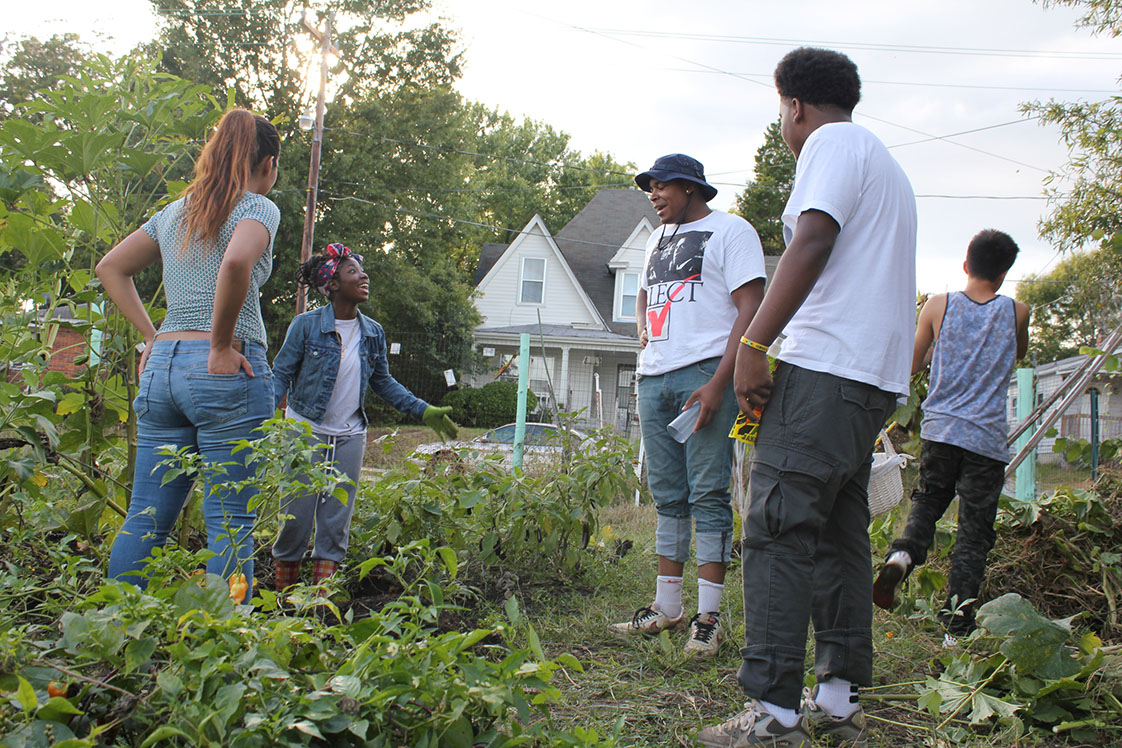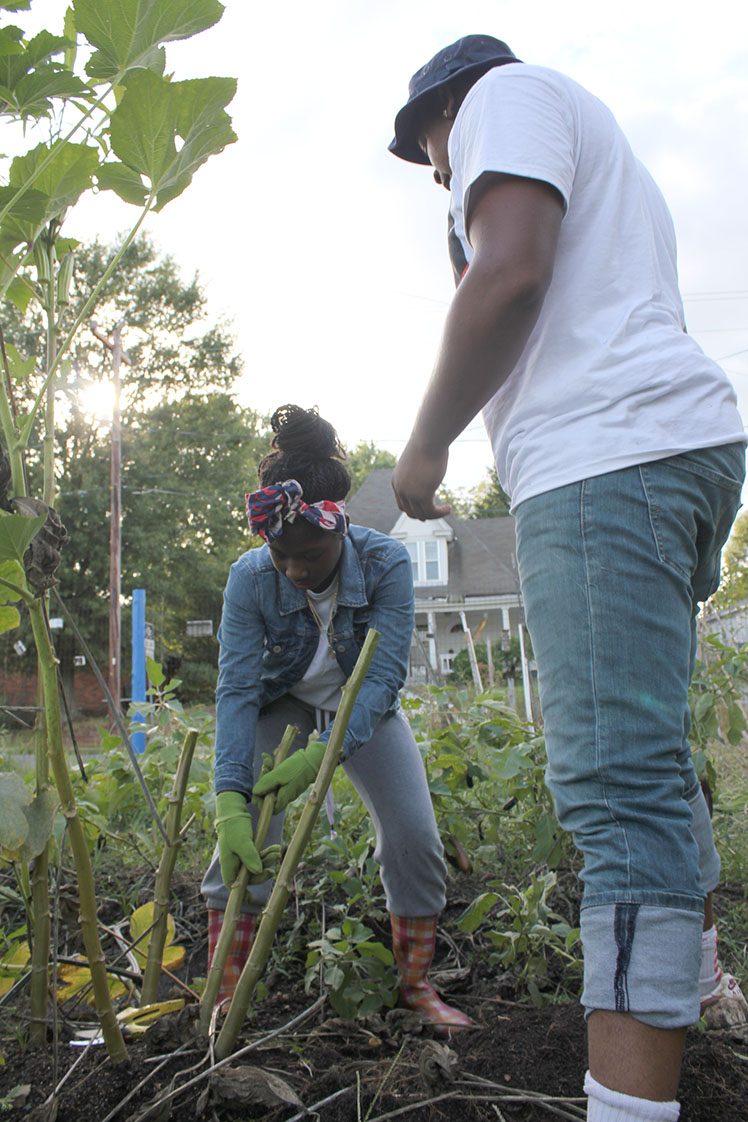
From left to right, Samantha Trejo, Latasha McMillan, Javonte Carver, Lawrence Fields, and Josue Lopez take a break from harvesting for a moment to chat in the DIG garden. (Staff photo by Mary Alta Feddeman)
Durham teens learn life skills through agricultural education, four days per week.
It’s a sunny, breezy Friday in late September, and high school students Andresha McPaul and Lawrence Fields are harvesting peppers. They maneuver their way around the lush, green garden with ease.
Sixteen-year-old McPaul has been working with the DIG program—which stands for Durham Inner-city Gardens—for three years. As she picks sweet peppers and places them in a basket, she explains that her favorite aspect of DIG is this part: the harvest.
And Fields, who has been with DIG for two years, agrees with her.

Latasha McMillan and Javonte Carver uproot a stalk to add to the compost pile. (Staff photo by Mary Alta Feddeman)
“I like harvesting because after all of your hard work, this is your final product,” Fields says. “All the sweat—it pays off. All the hot days pay off. On a cool day like this, it’s just easy harvesting.”
“I think that’s better than the paycheck in my opinion,” he continues, “to see how patient you have to be to get the final product.”
SEEDS (South Eastern Efforts Developing Sustainable Spaces) was founded in 1994 to engage Northeast Central Durham community members in sustainable, healthy living through agriculture. SEEDS began the youth-driven DIG program in early 2000. Located on the corner of Gilbert and North Elizabeth streets, DIG’s guiding mission is, according to their website, to encourage respect for the earth and the community through urban farming.
The crew of five high school students and two full-time staff members are pulling up their early summer garden and forming a compost pile from rooted plants. Soon, the crew will begin planting their winter garden.
Staff member Latasha McMillan says another major aspect of programming during the colder months is holding workshops on topics that go beyond the scope of the garden.
“We’re going to work on budgets, we’re going to talk about money, we’re going to talk about friendships—we’re going to talk about a lot of stuff that a lot of students don’t get in school,” says McMillan, who was a participant in the program as a teen before she became a full-time staff member.
DIG coordinator Leslie Simonds Hidalgo echoes that sentiment, with plans to hold workshops on everything from farmworker justice and rights to financial literacy and stability.
Eighteen-year-old Javonte Carver says he has been involved with DIG for about five years, and his favorite part of the program is that much of it is self-directed.
“My favorite part about DIG is that I am my own leader [and] my own manager,” Carver says. “This is a youth-led program, so I am allowed to do as I wish and I am able to manage myself and at the same time I’m outside doing things that are fun and awesome.”
Carver says there are three things DIG members typically do with the produce after a harvest: give some produce to members of the local community, sell produce at the Durham Farmer’s Market, and cook lunch for one another every Saturday.
McMillan says this community connection and consciousness is the main value the program hopes to pass on to teen participants.
“Being conscious about food first of all, about who they are as people, who we are as people, and that there are different people in the world: That’s kind of what we revolve ourselves around [with] sustainable living,” McMillan says.
Both Carver and Fields say that the skills they have learned in DIG should be taught more widely.
“I think that this should be taught to everybody, like you have to know basic math and basic reading skills. You should learn basic gardening skills,” Fields says.
Carver also thinks that food-based knowledge is crucial for communities to thrive.
“If you were to ask me a couple years back ‘What are GMOs? What is MSG? What is red-40?’ I would’ve been like, ‘I don’t know what this stuff is. You know, it’s food. Food is food,’” Carver explains as he scatters hay over the compost pile.
He continues, “But now, knowing what these things are, I’m able to combat them and…fight all these things that are going on in my communities and try to fix them.”